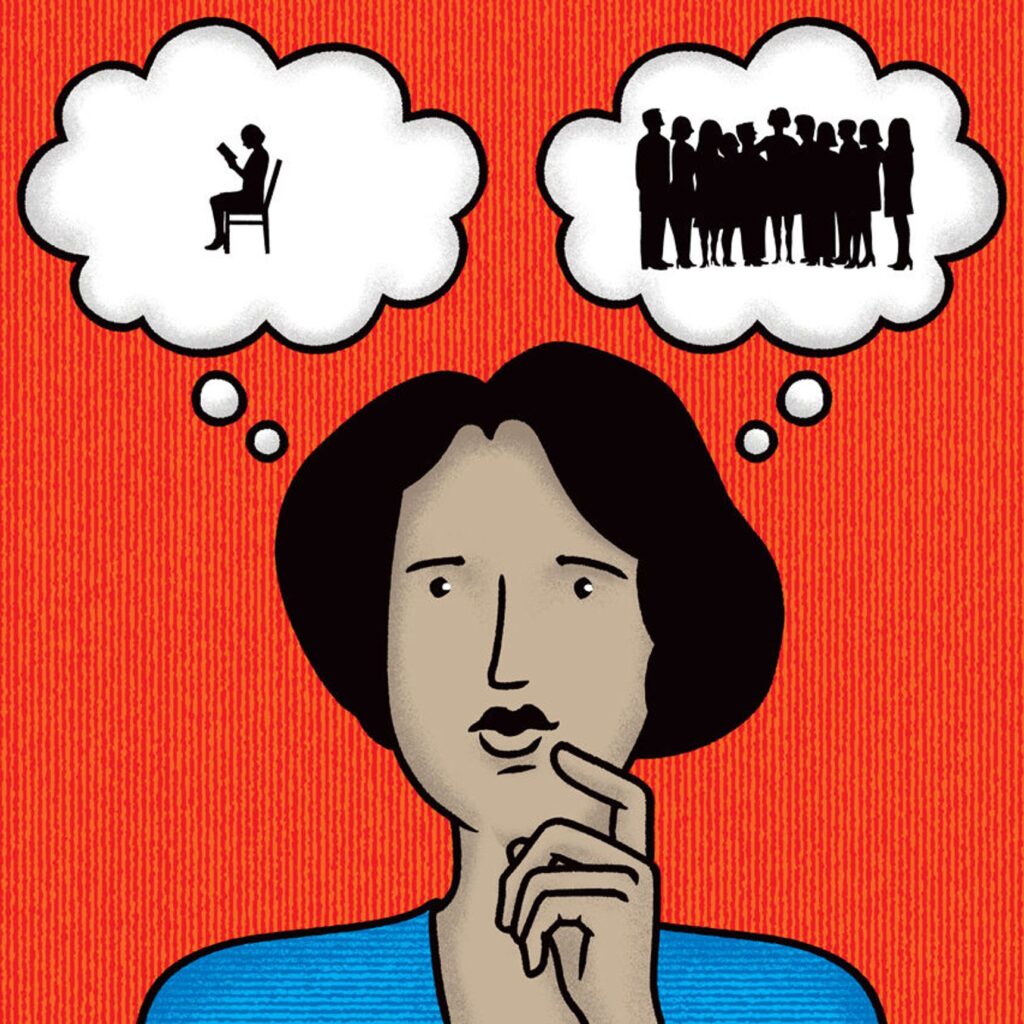To Enjoy Social Contact, Choice Matters
By Susan Pinker
www.wsj.com/articles/to-enjoy-social-contact-choice-matters-11648145138
Whether our homes became refuges or prisons over the last two years, there is no doubt that the pandemic dramatically curtailed our social autonomy. We could no longer decide if and when to socialize, or even with whom. If we were lucky enough to have a home, we were stuck with our fellow inmates.
Research just published in the Journal of Happiness Studies now reveals that when it comes to happiness, having a choice is key. People who don’t choose to be social but end up surrounded by other people rate themselves as unhappiest. In contrast, folks who opt to be social and then find themselves in the company of others were ecstatic.
“Our culture is so focused on how positive interactions can be—just think of FOMO—that we don’t consider the alternative,” said the study’s lead author Liad Uziel, a psychology professor at Bar-Ilan University in Israel. “If you choose to be in a social situation, then you are likely to get more out of it. But your well-being is likely to drop if you didn’t choose it.”
The occasional period of time alone brings happiness to everyone, as long as that person chooses it.
The study, published with fellow Bar-Ilan psychology professor Tomer Schmidt-Barad, recruited 155 university students as participants. Every time the students received a text reminder on their phones, they had to report what they were doing and with whom, if they had any control over who they were with, and how they felt about it all. As Dr. Uziel described it: “How satisfied were they—their positive and negative experiences at that moment, how meaningful they found what was going on at that time, and how much control they had over the situation they were in.” The participants were pinged three times a day for a total of 10 weekdays, which yielded a mountain of data: 4,300 status reports.
Once the numbers were crunched, the researchers discerned several patterns. When people found themselves in social environments, whether chosen or unchosen, participants’ ratings of their experiences tended to the extreme, with higher highs and lower lows. “This means that our emotions are so much more intense when we’re with other people compared to when we’re alone,” Dr. Uziel said. Participants found themselves in environments they hadn’t chosen—such as classrooms and workplaces—about 30% of the time.
Being alone is more predictable, while being with others always presents surprises, he added. He used watching a soccer game as an example: “When you are alone and your team scores a goal, it’s exciting. But it’s way more exciting if you’re with other people—you experience it more powerfully.” This doesn’t mean that time alone is to be avoided, he said; the data show that “the occasional period of time alone brings happiness to everyone, as long as that person chooses it.”
Being with others also means having an audience, which heightens the impact of any experience. Performers know this, as does anyone who has ever watched a 5-year-old learning to ride a bike. Having an audience witness your achievement feels glorious. Of course, falling off your bike repeatedly is embarrassing when there’s an audience. These are the extremes of feeling that Dr. Uziel said were typical of social situations, whether or not they were chosen.
His next project will be to look at how the pandemic has changed the meaning of social situations. “It’s a risk, even for people who like to be with others,” Dr. Uziel said. “We shouldn’t push people to socialize.”
This dictum, he suggested, should influence how we design workplaces and family homes: “Give people as much choice as possible. Because forcing social contact on people is just a source of stress.”


